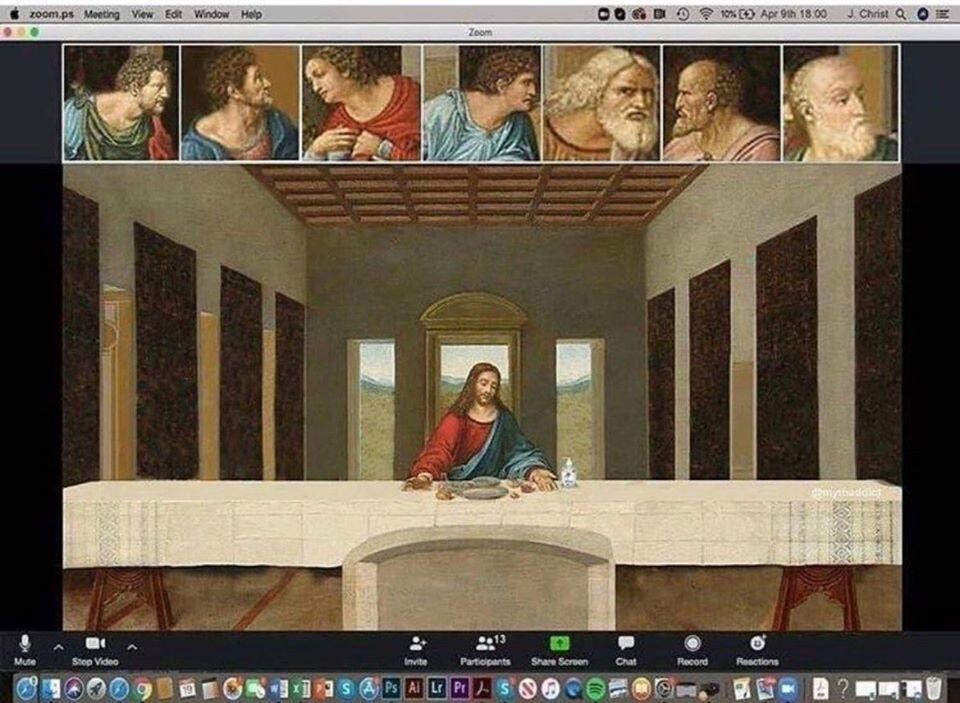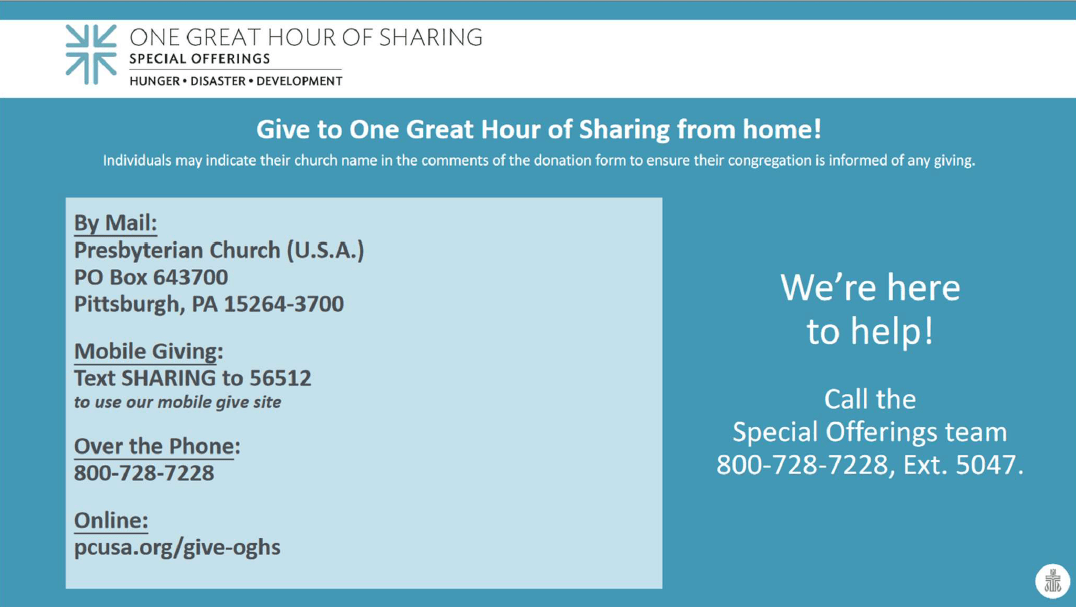Life Goes On
Life Goes On
While Jesus was going and they were gazing up toward heaven, suddenly two men in white robes stood by them. They said, “Men of Galilee, why do you stand looking up toward heaven? This Jesus, who has been taken up from you into heaven, will come in the same way as you saw him go into heaven.”
Acts 1:10-11
As life in this time of Coronavirus continues, our varied behaviors continue to evolve—or devolve— as physical isolation becomes the “new normal” of our lives. The monotony of staying at home day in, day out causes me to lose track of the day of the week. I am reminded of patients in the hospital, who often lose track of time after staying in the same room for a while. A few of us have also noticed that our bodies are getting stiff and ache-y, as we are not as mobile as we used to be, so we need to be more intentional about finding new ways to exercise.
It’s a little surreal that our lives have turned inside out—or seemingly stopped—because of something we just hear about on TV. I only know one person who was diagnosed with the virus, but recently found that her case was much more serious than I thought. She is a pastor in a neighboring presbytery, younger than I am. Her family also got sick, but she had the worst of it, ending up in ICU, on a ventilator, for two weeks. Thank God she has been released from ICU this past week, but still in need of strength and healing.
Worse, the disparities of our society are magnified in new ways through the lens of Coronavirus. Those of us who can continue to work from home, or whose income is protected, are bored but confident. I cannot imagine how painful it is for small business owners whose dreams have evaporated within weeks. Then there are those who still have a job, because they tend to our most basic needs such as food, delivery, emergency response, and healthcare but at greater risk, low pay, and sometimes without benefits. I love when an emergency room doctor publicly thanks the hospital orderlies and janitors; I hope that we give thanks for the farmworkers, meat packers, and truck drivers who bring us our food, sometimes in unsafe conditions. And there is a growing awareness of the most vulnerable among us: those who live in group institutions such as nursing homes, detention centers, or prisons; those who have no homes; those who have no documentation and thus no government help or protection; those who are emotionally fragile; those whose homes are not safe due to domestic violence or other challenges.
As the weight of all this stress bears down on us, we see angry protests, endless food pantry lines, and we hear of an enormous tragedy in Canada—no knowledge why a man would kill 16 innocent people, with no prior sign of violent tendencies.
As I’ve mentioned before, we have our own ways of coping with this existential crisis. Many of us flew into action, doing what we could to find new ways to worship, and care for each other, and work without in-person meetings. We tried to make the best of things, focusing especially on the stability of our churches and our close family and friends. Now we hear of the possibility of some areas opening up, and it’s hard to even imagine what that would feel like. The times are so uncertain that even what might be good news is bewildering.
That’s how I often think about Jesus’ ascension. The good news is that Jesus rose from the dead and hung out with the disciples for a few weeks, and then went up to heaven. Their faith in him was vindicated, and soon they were to be empowered by the Holy Spirit to carry on the work of the church on Pentecost. But they’ve been through such an emotional whirlwind—from the excitement of entering Jerusalem, only to see Jesus betrayed, arrested, and killed, then seeing him risen, and then losing him again as he is taken up into heaven . . . it’s no wonder that they seemed paralyzed, just looking up to heaven after him.
But Jesus had already told him there were big plans for them, and two messengers are sent to tell them to snap out of it—they can’t just stand there, looking into the sky!
So even though we’ve been on a rollercoaster these last few weeks, and even as I do believe we need to let God control the rollercoaster, and even as our faith in God’s goodness enables us to find rest in the middle of this storm, when the time is right, when we get the message from God to get moving, we can prepare for whatever God has in store for us. Though I usually imagine the disciples jumping into Pentecost immediately after the angels tell them to get moving, actually the Bible says they did a little organizing—they went back to Jerusalem and stayed together, they found a new twelfth in Matthias, and they prayed throughout. And then the Holy Spirit came over them, and empowered them for Christ’s mission in the church.
Again, the time may be different for some of us, but when the time is right, let us stay connected (electronically if not in person), let us ensure we have welcomed in all the members of the body, and let us pray . . . and pray . . . and pray—and when the Holy Spirit empowers us and guides us, let us show that life goes on in the Spirit.
And may you see—and soon, Lord, soon!—the glorious post-Corona future God has in store for each of you, and each of Christ’s churches.
Blessings to you this Easter season,
Wendy


